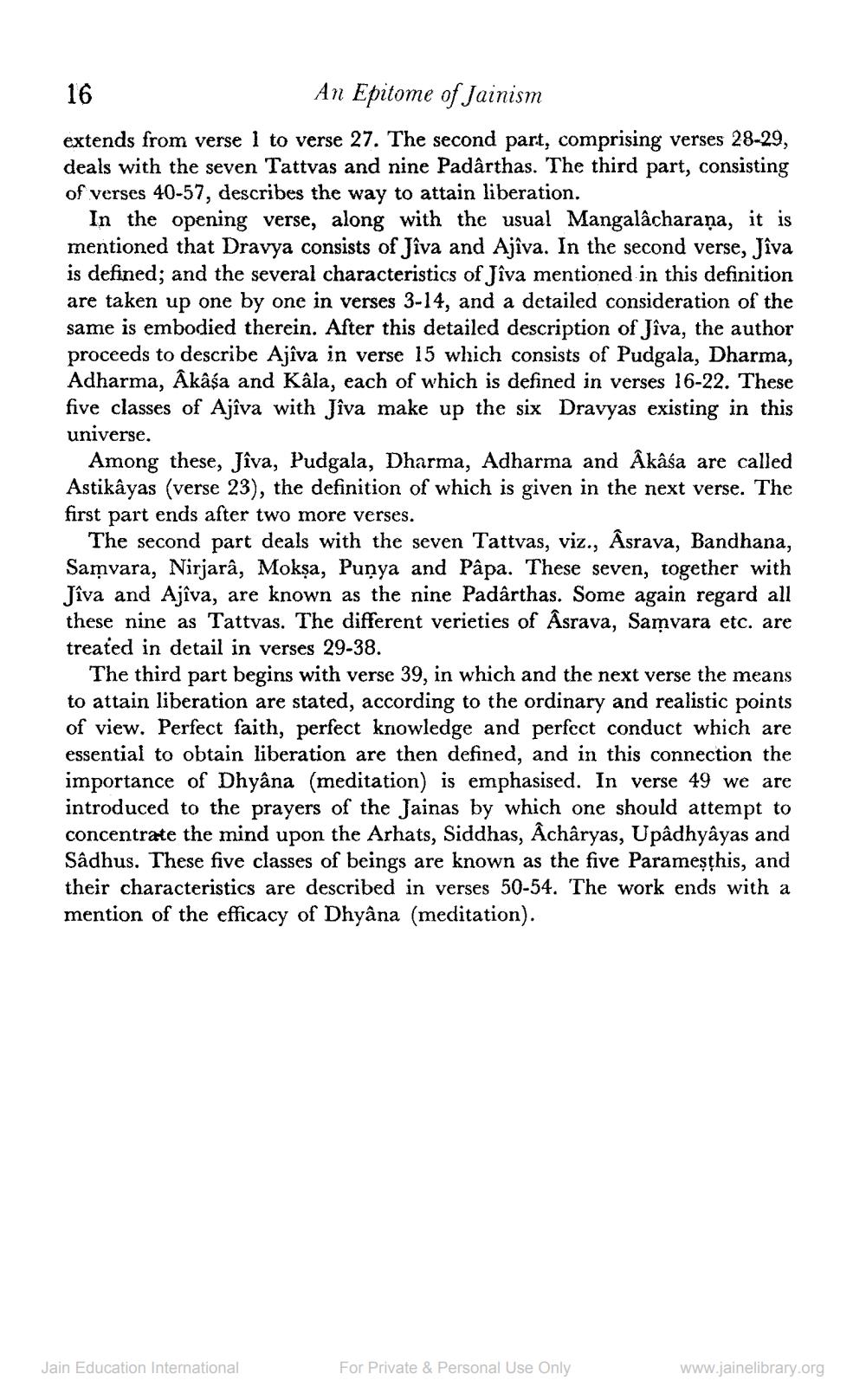________________
16
An Epitome of Jainism
extends from verse 1 to verse 27. The second part, comprising verses 28-29, deals with the seven Tattvas and nine Padârthas. The third part, consisting of verses 40-57, describes the way to attain liberation.
In the opening verse, along with the usual Mangalâcharaṇa, it is mentioned that Dravya consists of Jîva and Ajîva. In the second verse, Jîva is defined; and the several characteristics of Jîva mentioned in this definition are taken up one by one in verses 3-14, and a detailed consideration of the same is embodied therein. After this detailed description of Jîva, the author proceeds to describe Ajîva in verse 15 which consists of Pudgala, Dharma, Adharma, Âkâśa and Kâla, each of which is defined in verses 16-22. These five classes of Ajîva with Jîva make up the six Dravyas existing in this universe.
Among these, Jîva, Pudgala, Dharma, Adharma and Âkâśa are called Astikâyas (verse 23), the definition of which is given in the next verse. The first part ends after two more verses.
The second part deals with the seven Tattvas, viz., Âsrava, Bandhana, Samvara, Nirjarâ, Mokṣa, Punya and Pâpa. These seven, together with Jîva and Ajîva, are known as the nine Padârthas. Some again regard all these nine as Tattvas. The different verieties of Asrava, Samvara etc. are treated in detail in verses 29-38.
The third part begins with verse 39, in which and the next verse the means to attain liberation are stated, according to the ordinary and realistic points of view. Perfect faith, perfect knowledge and perfect conduct which are essential to obtain liberation are then defined, and in this connection the importance of Dhyâna (meditation) is emphasised. In verse 49 we are introduced to the prayers of the Jainas by which one should attempt to concentrate the mind upon the Arhats, Siddhas, Âchâryas, Upâdhyâyas and Sâdhus. These five classes of beings are known as the five Parameṣṭhis, and their characteristics are described in verses 50-54. The work ends with a mention of the efficacy of Dhyâna (meditation).
Jain Education International
For Private & Personal Use Only
www.jainelibrary.org




